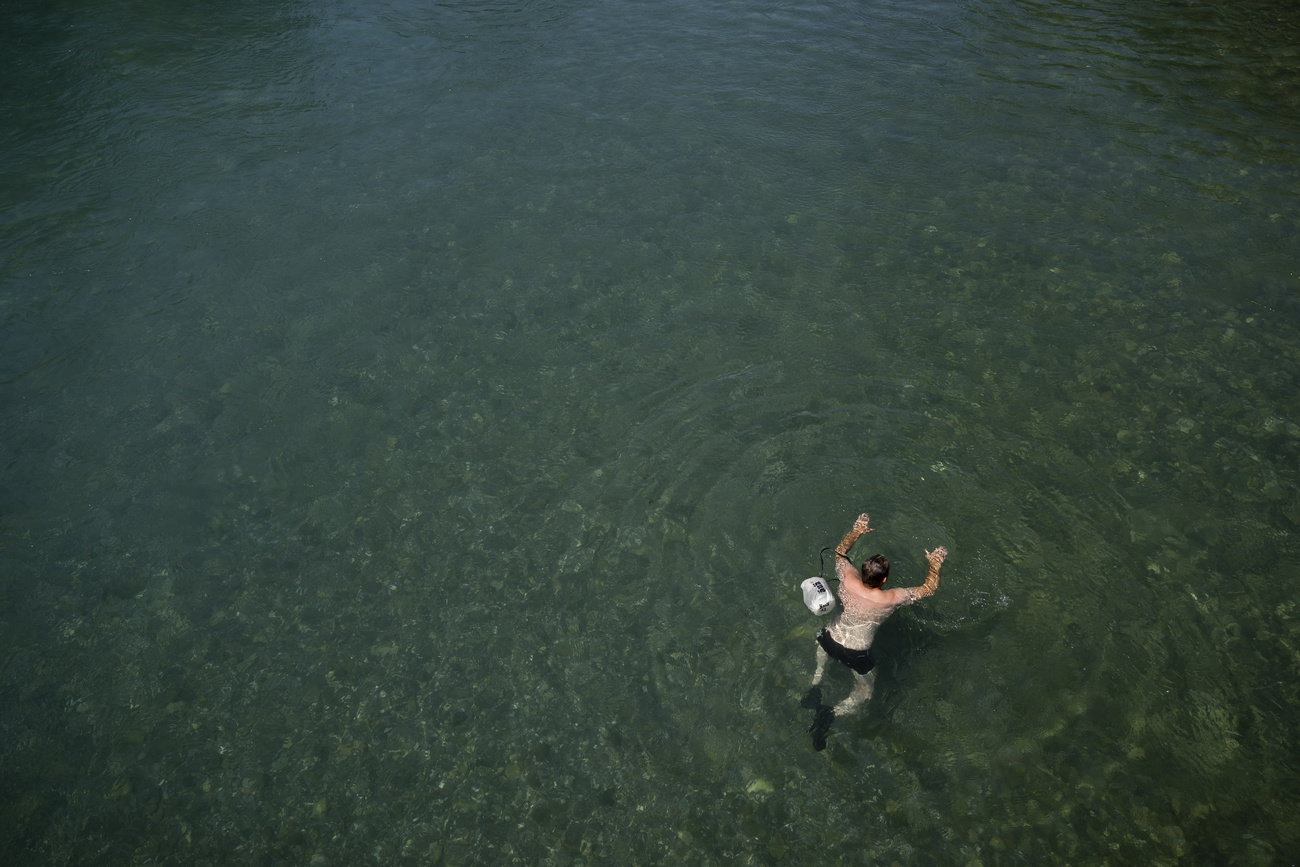
Water quality in Swiss rivers and lakes improves

Swimmable “practically everywhere”, but in some places still too many chemical traces: a national study of Swiss water paints a largely positive picture.
Thanks to measures taken over the past decades, notably in waste-water treatment, only a minor part of pollution produced in urban areas now ends up in Swiss rivers and lakes, the Federal Office for the Environment (FOEV) wrote on TuesdayExternal link.
The FOEV report – the first of its kind at a national level – finds that in general, levels of phosphorus in Swiss lakes have declined since the 1980s, and the lakes are “practically everywhere” safe for swimming.
It also notes progress made since a 2011 law on “revitalising” waterways by minimising the impact of hydroelectric plants and human construction on water levels and on the movements of fish.
Climate pressure
However, water quality doesn’t correspond to the legal requirements everywhere, the report says. Traces of pesticides from farming and medicines in urban waters still pollute some smaller rivers and lakes; the former also seep into underground waterways.
Phosphorus and nitrogen are also still too common, the FOEV says; as a result, levels of oxygen are reduced, which in turn has an impact on the survival and diversity of plants and animals.
Finally, climate change is also posing problems. In Basel, for example, the temperature of the Rhine has risen by 2°Celsius since the 1960s – this has led to a downturn in cold-water fish species like trout, and an influx of warmer-water and “exotic” species like Quagga mussels.

In compliance with the JTI standards
More: SWI swissinfo.ch certified by the Journalism Trust Initiative































You can find an overview of ongoing debates with our journalists here . Please join us!
If you want to start a conversation about a topic raised in this article or want to report factual errors, email us at english@swissinfo.ch.